- NEW DVD Series – Stone Setting with Bezels
- Tube Set Charm by Kim St. Jean
- Prong Basket Pendant by Kim St. Jean
- NEW DVD Series – Stone Setting with Cold Connections
- New DVD Series – Stone Setting with Wire
- NEW DVD Series: Introduction to Stone Setting by Kim St. Jean
- Featured Tool: Bracelet Bending Plier
- NEW Dvd by Eva Sherman
- Fun, Fast Fold Forming DVD Series
- Double Band Ear Cuff from Alex Simkin
Daily Wire Tip May 5: How to Use a Wooden Draw Plate
Daily Wire Jewelry Making Tip for
May 5, 2011
Question:
What is a wooden draw plate for, and how do I use it?
-Slava in Tucson, Arizona
Answer:
Slava, you’re not alone – we’ve received several questions about draw plates! A wooden draw plate is mainly used to reduce an item made from wire, such as a Viking Knit Chain, rather than the actual wire itself. Like a metal draw plate, this tool reduces the diameter and increases the length, but of the entire woven “tube”, rather than an individual strand of wire. The wood material allows the wire to slide easily without scratching or damaging the wire, even color-coated wire.
For our friends who also enjoy fiber arts, this process of elongating and smoothing a knit or woven chain is reminiscient of a knitter blocking a hot-off-the-needles wool shawl before wearing it – it makes a huge difference!
To help answer your question, we asked Albina Manning to talk a little bit about wooden draw plates. Take a look:
Albina and Two Questions about Wooden Draw Plates
If you don’t already have Flash Player, click here to install it in under a minute for FREE!
You can learn how to make the Viking Knit Chain in Albina’s Advanced Coiling and Weaving DVD, available on Wire-Sculpture.com.
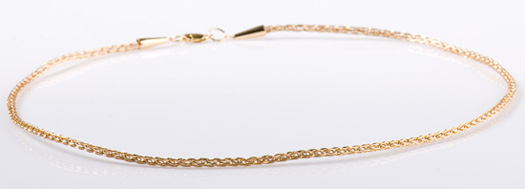
This 20″ Viking Knit Chain started as a much wider, 8 1/2″ column of woven wire!
Also, we had several great tips on using coated wire with draw plates: click Colored Wire and Draw Plates and scroll to the bottom to read some amazing tips from our readers!
You can find both kinds of wooden draw plates here. By the way, the vise Albina refers to for holding the square-shaped draw plate is not a pin vise, of course, but rather a tool like a mechanic’s vise that can be a third hand for you. You can find these kinds of vises in home improvement and hardware stores.
For information about using metal draw plates, click here: Metal Draw Plate Tips
Answer contributed by Albina Manning and the WS Staff

Have a Question? Click Here to Submit Your Question
Click to Receive Daily Tips by Email






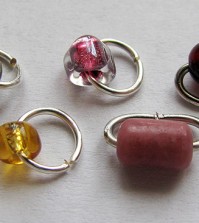

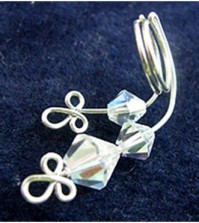

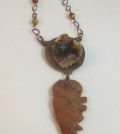
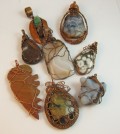

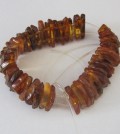

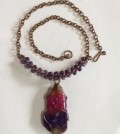
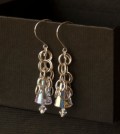
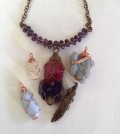
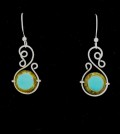
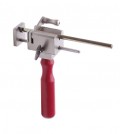
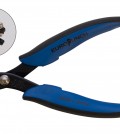
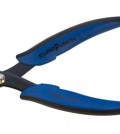
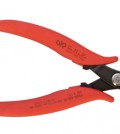
Barb
May 9, 2011 at 4:39 am
I made my own draw plate out of another “found” item.
I took an old plastic cutting board (it is about 1/2″ thick) and I drilled a series of holes in it. This works great to pull the Viking Knit through to finish it. I made 9 holes in sizes from 1/2″ down to 7/64″.
The cutting board was large enough to make 2 complete sets of holes in case any got damaged along the way. It is also large enough and has a handle to hold onto while pulling the wire through it.
I think that the plastic surface may be “kinder” than the wood type of draw plates to the silver plated wire I have been using. I have had no problems using this homemade draw plate on 24, 26 and 28 gauge wire.
dalecgr
May 9, 2011 at 10:19 am
Nice idea Barb, thanks for telling us how you made your own plastic draw plate, specifically for the Viking Knit!